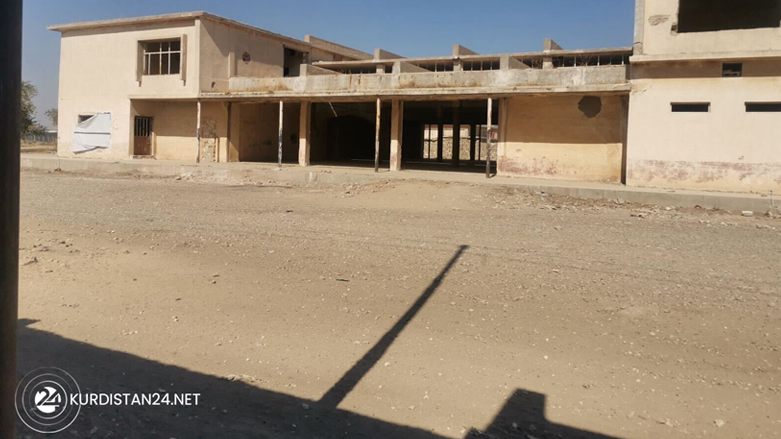Iraqi army stops plan to put Baathist-era military base used in Anfal back in operation

ERBIL (Kurdistan 24) – Activists and locals want a former Baathist-era Iraqi military base in Kirkuk to be turned into a memorial to the atrocities perpetrated by the former Iraqi regime against the Kurdish people following the Iraqi army’s recent attempt to put that base back into operation.
The unused base, which once contained a torture chamber, is located in Topzawa village in southern Kirkuk province.
During the genocidal Anfal campaign in the late 1980s, the former Iraqi regime uprooted thousands of Kurds, including women and children, mostly from rural areas. The regime then took them in buses to the Topzawa base, where males and females were segregated before being transported to prison camps in the desert.
The bodies of over 60 Kurds were later found inside the base, survivors of the genocide recalled.
The base was built in the early 1980s and was in operation until the ouster of the Baathist regime in 2003.
“Before we arrived, more than 50 buses were here [at the base]. When we arrived, it was very crowded, so we were transferred to Tikrit,” Saman Ahmed, an Anfal survivor, recalled to Kurdistan 24 on Sunday.

In light of this history, the recent attempt by the Iraqi army to put the base back into operation sparked outrage among local villagers, civil society groups, and survivors of the Anfal campaign and their relatives. As a result, the army has stopped this plan.
However, Hemin Haseeb, an activist on genocides, believes that a minister or the army might try again to use the base.
Instead of destroying it, the villagers of Topzawa kept it largely intact, hoping the base would be used as a monument to the atrocities against Kurds committed by the Baath regime.

Such a monument would help preserve the memory of “the bitter tragedy for generation after generation,” Sherzad Mohammad, a villager, told Kurdistan 24 on Sunday.
During the Anfal campaign, the former Iraqi regime systemically killed over 182,000 civilians, including women and children, according to findings from the Kurdistan Regional Government (KRG).
On each anniversary of the genocide, KRG officials call on the Iraqi government to compensate the families and relatives of the Anfal victims.
Additional reporting conducted by Hemin Dalo from Kirkuk
